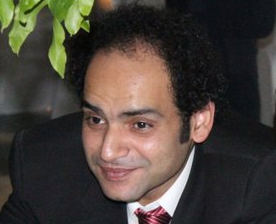By Paola Salwan Daher
BEIRUT: I have always thought that engaging with other women is one of the most beautiful and exciting parts of being a women’s rights activist. My last conversation about women’s rights took place via email, and was sponsored by the Common Ground News Service as a new initiative in which women’s rights activists in the Middle East were paired with their counterparts in other countries. I was paired with Idil Aybars, Research Fellow at the Center for European Studies at the Middle East Technical University in Ankara. My conversation with Idil proved as rewarding as past encounters with women’s rights activists.
In our discussion, Idil and I shared our views on how to most effectively reach out to women in our communities in order to mobilize them so they could increase their rights
The need to talk and listen to women — of all backgrounds — is paramount if we want to achieve true equality. And we cannot talk about women’s rights while failing to reach certain groups, such as women in lower socio-economic classes who tend to be less accessible. This is particularly true when it comes to the increasing use of social media in raising awareness of various causes. After all, not all women have access to these online tools, which tend to be accessible by women with higher economic or social standing. To complement online activism so that the campaign of equal rights reaches all audiences, on-the-ground action is much needed.
Nasawiya, a Lebanese feminist collective, began an initiative called HelloWomen in March, leading up to International Women’s Day on March 8 of this year. As part of HelloWomen, women’s rights activists went to some of the less privileged parts of Beirut, Tripoli, Saida and Byblos to reach out to women passing by on the streets and talk with them in an effort to determine their level of knowledge about their rights . The initiative helped provide a better picture of what women do and do not know about what’s legally afforded to them. While men often interrupted these conversations to add their two cents — sometimes agreeing, sometimes disagreeing — it was clear that women too were divided on the issue of their rights. Some advocated passionately for them and more while others agreed with a more patriarchal and traditional view of granting women only limited rights.
This initiative was also the basis for the creation of a center for female migrant workers. During the outreach process, Nasawiya activist Nadine Moawad realized while talking to a domestic worker during this outreach that domestic workers in Lebanon should have a place to meet, hold workshops and social gatherings, and provide each other with support given their vulnerable position within Lebanese society.
A wave of domestic women workers had committed suicide last year. This year, women’s groups wanted to raise awareness on the appalling working conditions some domestic workers face, such as discrimination, verbal abuse, physical threats, sexual violence and no holidays. What’s more, their fates are often left up to the offices in charge of bringing them to Lebanon and not to the state. With such a lack of support, a centre for them to meet and become increasingly knowledgeable of and proactive about their rights was much needed.
As Idil and I wrote to one another, continuing the conversation on women’s mobilization, we began talking about the strength and achievements of the women’s movement in our respective countries and the power of civil society. In both countries, we’ve witnessed that civil society is alive and that through their struggle for women’s rights, the situation for Turkish and Lebanese women is slowly improving.
For example, Idil mentioned many of the steps towards gender equality that have been taken in Turkey, especially in regard to constitutional amendments and civil and penal law over the last decade. Notably, changes within the Turkish penal code have eliminated conservative patriarchal concepts of chastity, honor, public morality, shame and decency. Meanwhile in Lebanon, Article 562 of the Penal Code that allowed reduced sentences for honor crimes has been revoked, a clear victory for the women’s rights movement.
During our exchange, Idil wrote something that resonated with me. She said: “Everywhere in the world, women face discrimination just because they are women.” This conversation made me feel, yet again, that we cannot forget the importance of mobilization and solidarity between women on a national, regional or global scale to improve women’s rights in our societies.
Paola Salwan Daher is an international law jurist, trainer and researcher in human rights with a focus on women’s rights. Daher is also a member and trainer at Nasawiya feminist collective in Lebanon. You can watch videos and read testimonies on the HelloWomen initiative here: http://www.nasawiya.org/web/2011/03/hellowomen-we-wanna-talk-to-you. This article was written for the Common Ground News Service (CGNews), www.commongroundnews.org.



